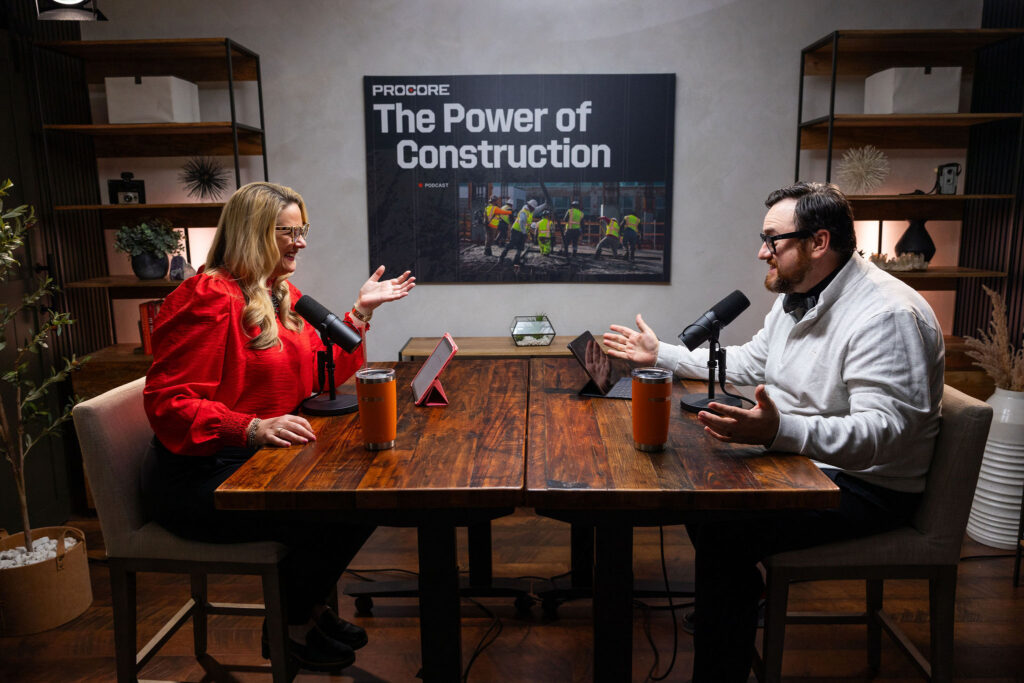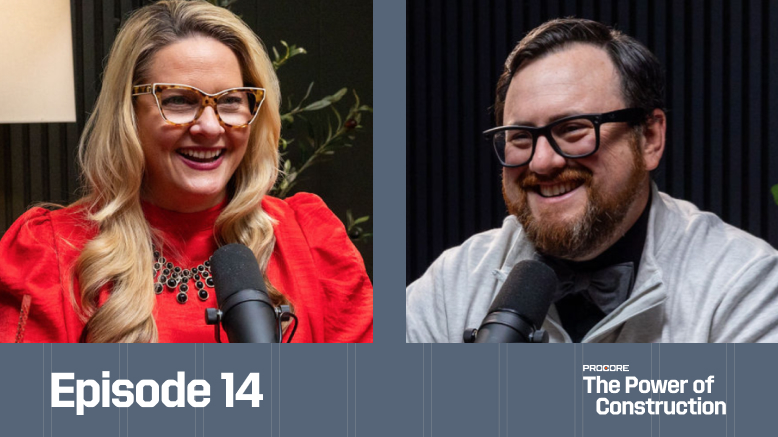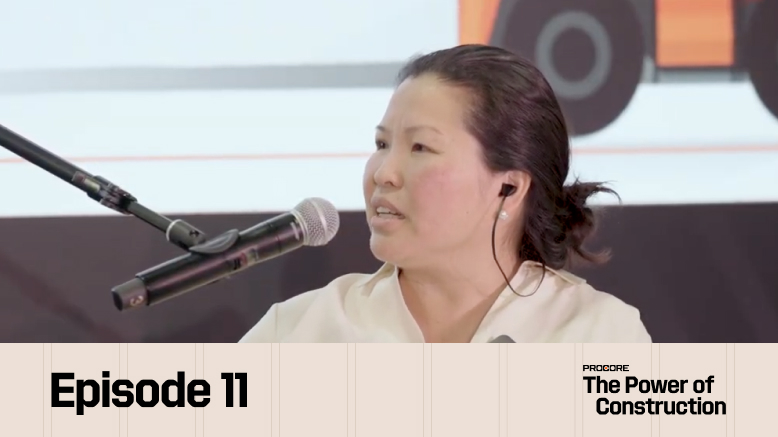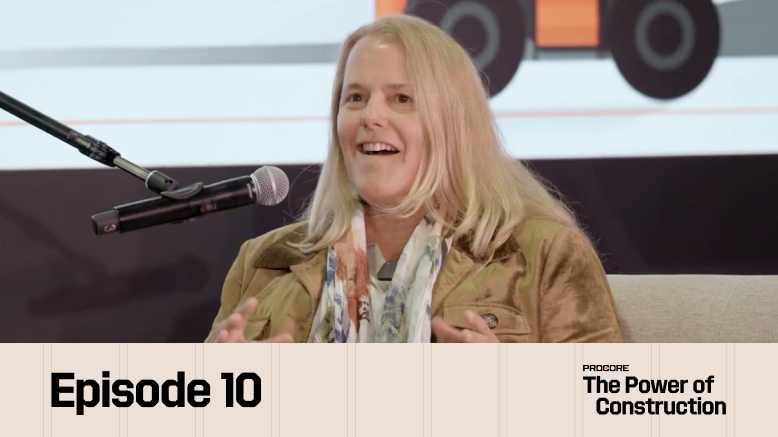A Global Perspective on Construction Excellence
Fred Mills, founder of The B1M with 4.7 million YouTube subscribers, has documented construction's most ambitious projects worldwide. From Notre Dame's meticulous reconstruction using medieval techniques to the International Nuclear Fusion Reactor bringing together 35 countries, Mills has witnessed construction at every scale and complexity.
His travels across dozens of countries reveal a consistent truth: regardless of project size or complexity, "amazing people making it happen and driving it forward" remain the constant factor. Whether building fusion reactors or house extensions, the human element defines success.
Projects like the International Nuclear Fusion Reactor (ITER) and the Mont Cenis Base Tunnel through the Alps showcase construction at its most extreme. ITER spans a site the size of Monaco, involves 35 countries across six continents, and requires building infrastructure to transport massive components across specially modified roadways. Yet Mills identifies the common thread: "amazing people making it happen and driving it forward," whether building fusion reactors or house extensions.
The Evolution of Construction Technology
Reflecting on ten years of technology coverage, Mills observes a maturation from the excitement around drones, robots, and 3D printing to more purposeful, business-case-centered adoption.
Rather than the revolutionary transformation many predicted, the industry has embraced technology more deliberately, serving actual business needs rather than pursuing innovation for its own sake. This grounded approach, combined with broader societal digital literacy improvements, has created more sustainable technology integration.
People as the Unchanging Constant
Despite technological advances, Mills emphasizes that people remain "the glue that holds this industry together." From the Empire State Building to the transcontinental railroad, from the Golden Gate Bridge to modern mega-projects, human collaboration and expertise drive every achievement.
With 42% of skilled workers retiring by 2030, the industry faces a skills crisis that can't be solved through automation alone—it requires attracting and developing human talent.
The Two Camps of Workforce Development
Mills identifies two distinct approaches to addressing the labor shortage:
The Engaged Camp: Companies that understand they're in a "war for talent" and recognize that young people want more than salary—they want to make a meaningful difference. These organizations tell compelling stories about construction's impact on education, healthcare, infrastructure, and climate change while creating environments where people want to work and stay.
The Checkbox Camp: Companies that treat workforce development, diversity, and mental health as obligations rather than strategic imperatives. These organizations struggle because they're not genuinely committed to the cultural changes necessary to attract and retain talent.
The Storytelling Imperative
Mills argues that construction storytellers have a critical duty to change public perception and attract talent. Traditional media often focuses only on accidents and disasters, creating negative impressions during a talent crisis.
The industry must tell its complete story—connecting cause and effect, showing how construction impacts daily life, and demonstrating the meaningful difference builders make in communities.
Beyond Mega-Projects: The Complete Construction Story
While spectacular projects capture attention, Mills emphasizes the importance of explaining the "why" behind construction work. ITER isn't just about massive engineering—it could eliminate fossil fuels and solve pollution. Storm drains aren't just concrete tunnels—they protect cities from flooding. Schools aren't just buildings—they shape how children learn and grow.
This complete narrative helps people understand construction's societal impact.
The Personal Journey Behind Get Construction Talking
Mills courageously shares his personal struggle with depression, despite outward success with his business, team, travel opportunities, and family. His experience taught him that mental health challenges can affect anyone regardless of circumstances, and that it's a sickness, not a character flaw.
Speaking publicly about his mental health journey at Groundbreak marked a turning point from trying to appear infallible to embracing vulnerability as strength.
Global Mental Health Impact
The Get Construction Talking campaign, launched in partnership with Procore, has reached over 20 million people globally through events in Chicago, Denver, London, and Sydney. The initiative focuses on normalizing conversations about mental health, raising funds for construction mental health charities, and empowering colleagues to recognize warning signs and offer support.
The campaign's warm reception across different countries and cultures demonstrates that mental health challenges are universal in construction, and the industry is ready for meaningful change rather than superficial checkbox initiatives.
The Grassroots Approach to Mental Health
Rather than relying solely on HR departments or formal programs, Get Construction Talking emphasizes peer support. Colleagues who work closest together are best positioned to notice changes in behavior and ask simple questions like "Are you okay? You don't seem yourself lately."
This grassroots approach recognizes that authentic human connection often provides the most effective early intervention.
The Authenticity Factor
Mills credits the campaign's success to authentic storytelling rather than corporate messaging. When he and rugby referee Nigel Owens shared their personal mental health journeys at events, audiences responded with genuine commitment to create meaningful change in their organizations.
Real human stories cut through in ways that statistics and policies cannot.
Generational Change as the Ultimate Driver
Looking ahead ten years, Mills identifies generational change as the most exciting development—more impactful than robots, drones, or 3D printing. The changing of the guard presents opportunities to refresh approaches while capturing knowledge from retiring workers.
New generations bring different perspectives, values, and expectations that will drive fundamental changes in how the industry operates.
The Essential Safety Foundation
Mills emphasizes that physical and mental safety must be foundational rather than aspirational. In an industry facing a skills crisis, construction cannot be a sector that "tops the charts for death by suicide in three of the biggest markets around the world."
Basic safety—both physical and mental—must be a given before other improvements in culture, diversity, and innovation can take hold.
Skills Evolution and New Opportunities
The industry's evolving skill requirements create opportunities to attract talent from unexpected places. Future construction roboticists, building energy engineers, and autonomous system managers may come from high school robotics programs rather than traditional construction pathways.
Changing the perception of construction careers becomes crucial for accessing this broader talent pool.
Rapid-Fire Q&A with Fred Mills
Book Recommendation: Essentialism: The Disciplined Pursuit of Less by Greg McKeown—about the power of saying no
Sources for Different Perspectives: Reading the same story from multiple sources and social media platforms to form balanced conclusions
Advice to Younger Self: "Believe in yourself more. Be true to yourself more"—stop doubting and comparing yourself to others
Innovation Shaping Construction's Future: Generational change bringing new ideas and perspectives
Industry Tagline: "We shape the world"—cities, homes, hospitals, and transport systems
Key Takeaways
This episode reveals that the future of construction depends on:
- Human-Centered Innovation: Technology serves people rather than replacing them
- Authentic Storytelling: Real stories create genuine connection and change
- Mental Health Priority: Physical and psychological safety must be foundational
- Generational Wisdom Transfer: Capturing retiring workers' knowledge while embracing fresh perspectives
- Purpose-Driven Careers: Young talent seeks meaningful impact, not just employment
- Global Collaboration: Mega-projects demonstrate what's possible when people work together
- Cultural Transformation: Surface-level changes won't attract or retain talent
- Peer Support Systems: Colleagues provide the most effective early intervention for mental health
- Complete Narratives: Explaining not just what construction builds, but why it matters
- Inclusive Opportunity: Evolving skill requirements can attract talent from diverse backgrounds
Fred Mills and The B1M demonstrate that construction's future lies not in choosing between people and technology, but in thoughtfully integrating both to create an industry where talented individuals can thrive while building the infrastructure society needs. The conversation makes clear that reshaping construction's future requires courage—the courage to tell authentic stories, address mental health challenges, and create workplaces where the next generation wants to build their careers.







